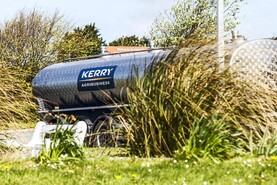DEAR SIR: Donal Magner’s article on the proposed new forestry programme sets out very clearly what needs to be achieved. I agree with everything he wrote.
However, he alluded to what is probably the greatest fear everyone involved in devoting land to forestry has, that what will be unveiled will just be adjustments to the old programme.
As Donal pointed out, we need a radical change from an approach that had its day and is no longer working.
To achieve, this needs a vision and courageous political leadership willing to put in place a design team of experts to cover the needs of all the major forestry stakeholders.
We need to allow trees assist us in a much more sustainable way of life.
The danger is that a programme designed without the involvement of all of the stakeholders stands a strong risk of being unacceptable to people needed to make it work. Donal wrote that we need to learn from the past.
The last programme has gone completely awry in the last 10 years. There has been a serious unwillingness to identify and accept where it all went wrong. Instead of addressing the ills in the system, the approach over the last number of years has been to promote side shows like agroforestry.
While these schemes have merit on a micro scale, they will not make a significant contribution to what we need to do in macro scale, as laid out in Donal’s article.
We need to put in place a long-term plan and build the infrastructure to support this plan and make the aims achievable.
If we want forestry to contribute to the Ireland of tomorrow, we need to commit to every step in the process from the beginning.
If the infrastructure is not put in place there will be no confidence and there will be an ongoing reluctance to become part of this.
Short-term inducements are pointless if the end goal is not actively supported throughout.
We need to learn from past mistakes. Many believe that there is an institutional unwillingness to accept that mistakes have been made. This is a serious problem because most successful enterprises are built from lessons learned through recognising mistakes and rectifying them.
Representative organisations
All the representative organisations for potential forestry and woodland owners need to be proactive now and demand an influential voice in what is being planned. If all is designed behind closed doors, we will be forced into reactionary mode once more.
It is likely that the empty consultative process of project woodland, which has left most participants far from happy, will be claimed to have involved landowners and tree growers in the design of the new forestry programme, which is not true.
It is a revolving door system and long established in the Department of Agriculture that has allowed officials to carry on doing their own thing, while giving the impression they are listening to those who are most affected by their decisions.
There is a chance that there has been a degree of enlightenment within the Department of Agriculture on the merits of serious expansion of tree growing. Therefore, there is hope that the efforts of the likes of Donal Magner have been listened to and that the reaction of people who would wish to plant trees will be one of pleasant surprise.
It would be far better that the main forestry representative organisations be briefed before any launch of new programmes in order to allow time to address any concerns they may have.
What is being planned will affect us all for the next 30 to 50 years. We need to get the plan right.






 This is a subscriber-only article
This is a subscriber-only article











SHARING OPTIONS: